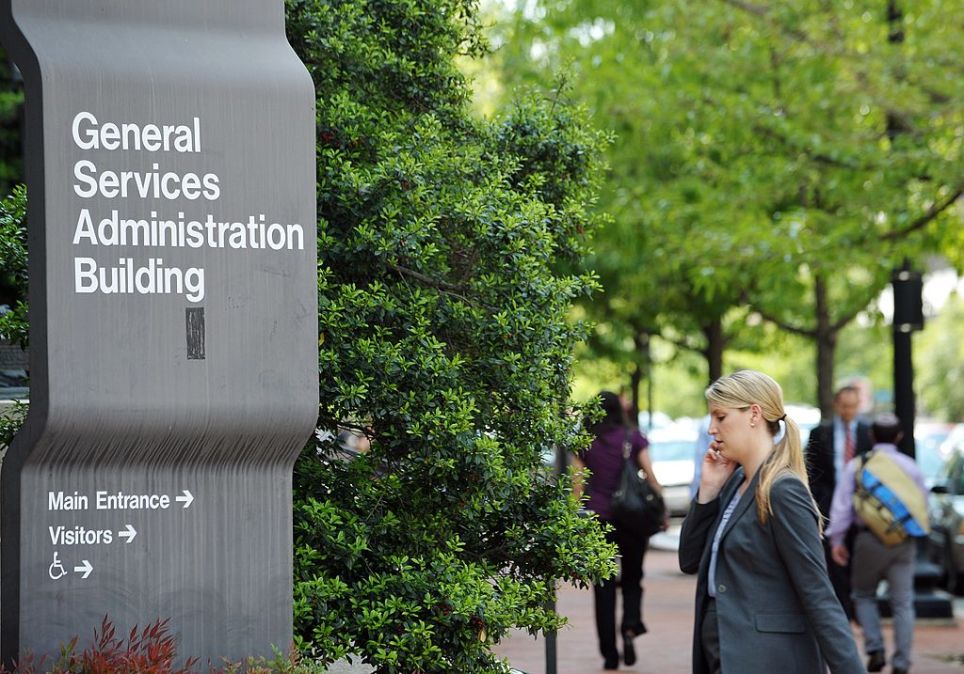GSA updating IT acquisition approach to reduce energy use

The General Services Administration is shifting the federal acquisition approach away from government-owned hardware toward as-a-Service models for enterprise IT infrastructure to meet the Biden administration’s climate goals.
Sustainability requirements are being added to existing and forthcoming contracts including the Ascend cloud marketplace blanket purchase agreement (BPA), which is in the early stages of being written, and the Alliant 3 governmentwide acquisition contract, in the market research phase.
President Biden reestablished reaching net-zero greenhouse gas emissions nationwide by 2050 as a goal when he took office in 2021, which coincides with more than 90% of new federal IT investments being in industry managed as-a-Service products by 2025 — an energy saver.
“A greater reliance on this industry provided infrastructure through cloud and other as-a-Service solutions inherently consolidates and shrinks the overall footprint of those government data centers and reduces the government’s consumption of raw materials and energy,” said Laura Stanton, assistant commissioner of the Office of IT Category and governmentwide manager, during a GSA summit on Thursday.
Government obligated about $70 billion for IT in fiscal 2021, and ITC sees an opportunity to incorporate more sustainability criteria into contracts.
The Ascend BPA will help agencies increase cloud adoption by offering common, core cloud capabilities and reducing their carbon footprints in the process.
“We’re taking that a step further,” Stanton said. “We’re in the early stages, through this BPA, of writing the environmental directives related to carbon pollution-free energy for data centers and will provide those cloud capabilities.”
Geothermal, hydroelectric, hydrokinetic, nuclear, solar, and wind energy are all being looked at for data centers provided through vehicle.
The Alliant 2 services contract requires greenhouse gas emission disclosures and reduction targets as a deliverable from contractors, and the same will be true of its successor.
“We’re in the middle of market research for the Alliant 3 governmentwide acquisition contract,” Stanton said. “And as we move forward we are looking to continue this practice in gathering those greenhouse gas emissions disclosures, as we go into the next generation of the Alliant program.”
The recently released, small business-focused Polaris requests for proposals feature two sustainability components: Applicants have the option to provide sustainable practices and impact statements, and products must be purchased at the Electronic Product Environmental Assessment Tool (EPEAT) bronze level. The EPEAT global ecolabel ensures agencies buy environmentally preferable IT solutions, with bronze being the base level.
ITC also added sustainability criteria to the $50 billion Enterprise Infrastructure Solutions (EIS) contract supporting federal network infrastructure. Requirements include climate change adoption, sustainability and green initiatives, and using energy efficient virtual and streamlined technology for agile and expansive network communications.
Contractors on the Complex Commercial SATCOM Solutions (CS3) vehicle must now prepare and update their corporate climate risk management plan for risks to land-based satellite equipment and services they provide.
Lastly, EPEAT use is mandatory on the Government Strategic Solutions (GSS) for Desktops and Laptops contract to ensure hardware being purchased meets standard configurations and minimum requirements outlined by the Office of Management and Budget.
“We’re building it in to make sure that we have sustainable equipment that we’re making available to the federal government,” Stanton said. “This means that the agencies don’t have to add in those requirements when they’re putting their task orders together.”





